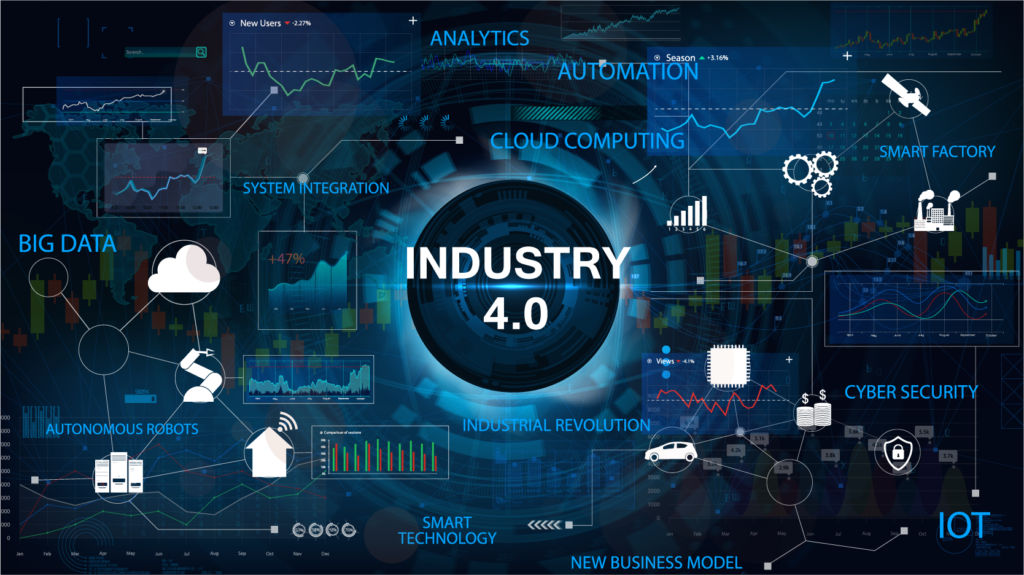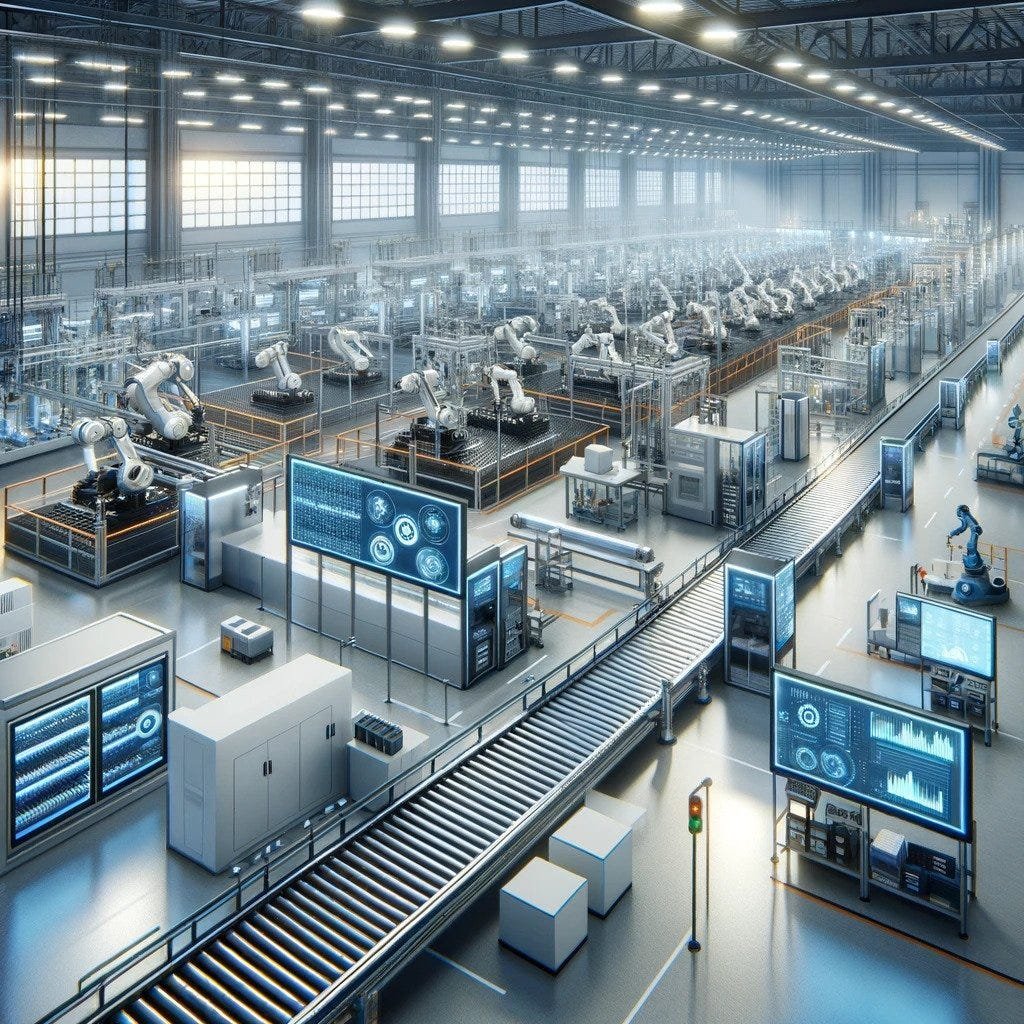Industry 4.0 is much more than just a buzzword; it’s the name of a profound transformation that is redefining the world of manufacturing and industrial production. Also known as the Fourth Industrial Revolution, this concept refers to the integration of advanced technologies such as the Internet of Things (IoT), Artificial Intelligence (AI), Big Data, Advanced Robotics, and Cloud Computing into production processes.
Unlike previous industrial revolutions, Industry 4.0 is not only changing how we manufacture products, but also how machines, humans, and data interact in real time. This evolution isn’t just for big companies; small and medium enterprises can also benefit from adopting emerging technologies that enhance productivity, flexibility, and efficiency.
What is Industry 4.0?
Industry 4.0 integrates the physical world with the digital world, creating what many call “smart factories.” Through cyber-physical systems, factories not only produce, but they also learn, adapt, and continuously improve. This synergy between industrial hardware and advanced software allows for the creation of manufacturing systems that are fully connected, autonomous, and, most importantly, optimized in real time.
Let’s explore some of the technological pillars that make this transformation possible:
- Internet of Things (IoT): Connected devices continuously collect and share data, enabling informed decision-making and remote operations management.
- Big Data and Advanced Analytics: With massive data collection, companies can gain valuable insights into production patterns, resource optimization, and product improvement.
- Artificial Intelligence and Machine Learning: With advanced algorithms, machines don’t just perform repetitive tasks but can predict failures, improve product quality, and adjust production based on demand.
- Collaborative Robotics (Cobots): Advanced robots can work alongside humans, performing complex tasks with precision and efficiency, reducing production times and improving safety.
- Additive Manufacturing (3D Printing): Enables the rapid creation of prototypes as well as the production of customized parts quickly and cost-effectively.

Benefits of Industry 4.0
The implementation of these technologies brings a wide range of benefits that enable companies to be more competitive and quickly adapt to market needs.
Flexible and customized production: Future factories are no longer limited to mass-producing standardized products. Thanks to smart automation and the flexibility of new technologies, production lines can quickly be adjusted to manufacture customized products, even in small batches.
Operational efficiency: With the ability to monitor and continuously optimize production processes in real-time, companies can reduce operating costs, minimize resource waste, and increase overall output.
Predictive maintenance: IoT sensors installed in machinery allow for the constant collection of performance data. This enables the detection of issues before major failures occur, reducing unplanned downtime and repair costs.
Data-driven decision-making: Advanced data analytics enable managers to make informed, accurate decisions. This translates into continuous improvement in supply chain management, production planning, and product quality.
Sustainability: Resource optimization and energy efficiency are key in Industry 4.0. With the ability to monitor energy consumption in real-time and adjust processes, companies can reduce their carbon footprint and contribute to a more sustainable future.

Challenges of Industry 4.0
However, the transition to Industry 4.0 is not without its challenges. The initial investment in technological infrastructure can be high, and integrating digital systems into traditional industrial environments may require careful planning. Additionally, cybersecurity becomes a priority as the constant connection of devices and systems increases the risk of attacks and vulnerabilities.
Another challenge is the need to train the workforce to adapt to this new digital environment. Workers will need to acquire new skills to interact with automated systems and fully leverage technological tools.
The Future of Manufacturing
Industry 4.0 is not just a trend; it is the new reality of global manufacturing. As companies adopt these technologies, they will not only see improvements in their daily operations but will also be better positioned to face changes and demands in the global market. Organizations that quickly adopt these technological advancements will lead the way, while those that lag behind risk becoming obsolete.
The key to success in this new era is adaptability. Companies must be willing to evolve and experiment with new technologies that drive innovation.
Conclusion
Industry 4.0 offers an exciting future full of possibilities. Smart factories, driven by digitalization and automation, are creating a new era of efficiency, customization, and sustainability. While the challenges are real, the opportunities for companies that join this transformation are immense.
Are you ready to take the next step into the Fourth Industrial Revolution?



